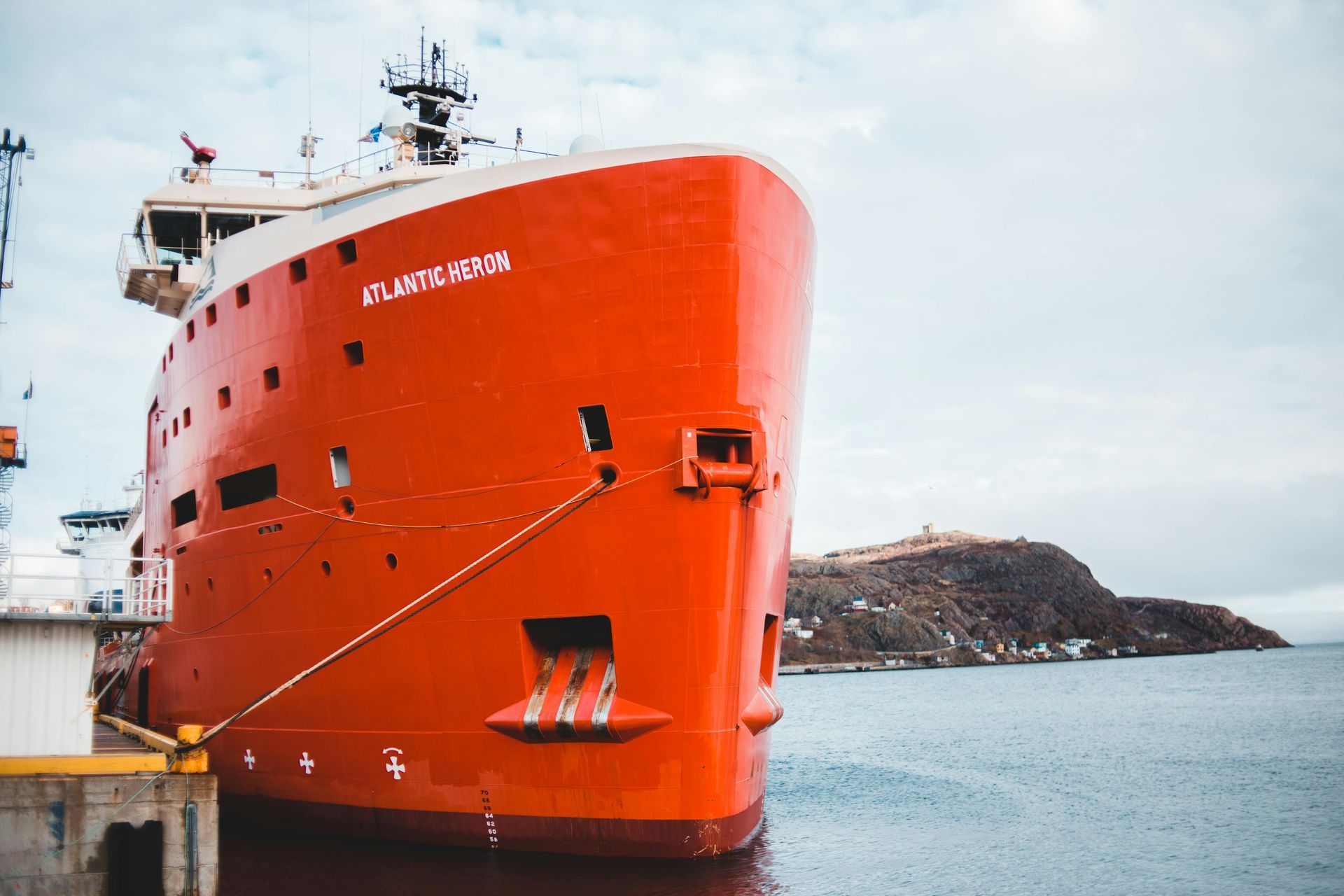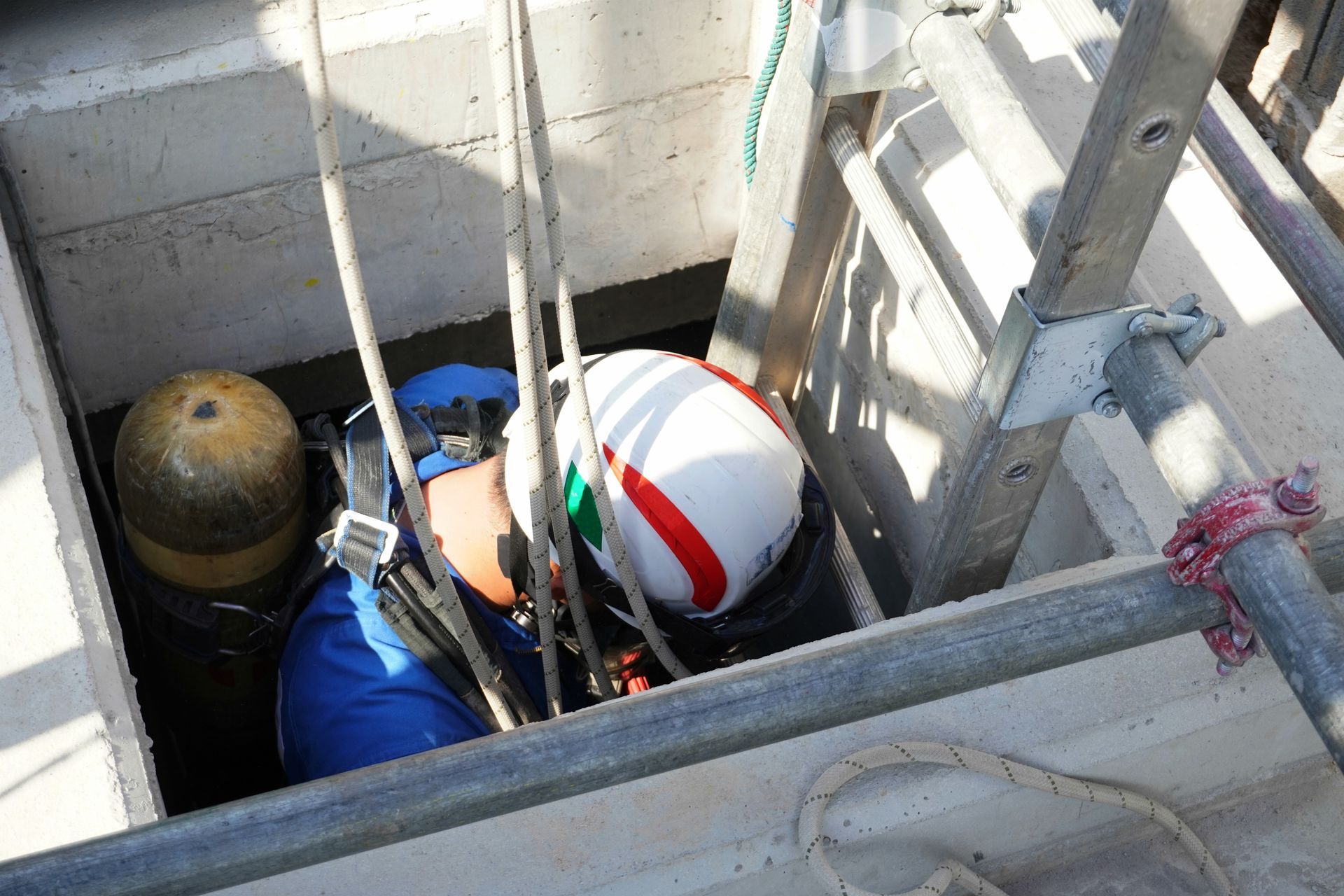Marine Paint

The Ultimate Guide to Marine Paint: Everything You Need to Know
When it comes to protecting vessels from the harsh marine environment, choosing the right marine paint is crucial. Whether you’re maintaining a small boat, a large commercial ship, or an offshore structure, the right coating can extend the lifespan of your vessel and enhance its performance.
At Dangle, we specialise in marine painting solutions that ensure durability, longevity, and compliance with industry standards. In this comprehensive guide, we’ll explore the different types of marine paint, including antifouling marine paint, marine paint for ships, and international marine paints.
What is Marine Paint?
Marine paint is a specially formulated coating designed to protect boats, ships, and other marine structures such as oil rigs and offshore wind turbines from corrosion, fouling, and UV damage. Unlike standard paint, marine coatings must withstand constant exposure to water, salt, and extreme weather conditions according to ISO 12944.
Key Benefits of Marine Paint
At Dangle, we understand the key benefits of marine paint that help with maintaining your offshore and coastal assets, especially in harsh marine environments defined in the latest 2018 edition of 12944 as CX. Whether it is our anti fouling resistance techniques, to help reduce the build-up of stubborn marine organisms, or our UV-resistant coatings to shield against sun damage and fading - we can assist with all aspects of marine painting with our specialist in-house painting experts.
The most noted benefits of marine paint whether for commercial ships or offshore structures are;
• Corrosion Protection: Prevents rust and metal deterioration.
• Fouling Resistance: Reduces the build-up of marine organisms like algae and barnacles.
• UV Resistance: Protects against sun damage and fading.
• Improved Aesthetics: Keeps vessels looking clean and professional.
• Enhanced Durability: Withstands harsh marine environments.
Antifouling Marine Paint: Keeping Your Hull Clean
One of the most important types of marine paint is antifouling paint. This specialised coating is applied to the bottom of boats and ships to prevent marine growth such as barnacles, algae, and molluscs.
How Does Antifouling Paint Work
Antifouling paint contains biocides that slowly release into the water, creating a protective barrier against organisms that attach to hulls. This reduces drag and fuel consumption, making the vessel more efficient.
Types of Antifouling Paint
There are several types of antifouling coatings, including:
1. Hard Antifouling Paint
• Best for fast-moving vessels and boats stored out of water.
• Provides a tough, long-lasting coating.
• Ideal for commercial cruise ships.
2. Self-Polishing Antifouling Paint
• Gradually wears away, revealing fresh biocide.
• Never fully cures.
• Suitable for cargo ships and other vessels spending long durations at sea.
• Offers consistent antifouling protection.
3. Copper-Free Antifouling Paint
• Environmentally friendly alternative.
• Ideal for aluminium hulls where copper-based paints could cause corrosion.
Marine Paint for Ships: Heavy-Duty Protection
Larger vessels such as cargo ships, tankers, and cruise liners require specialised marine coatings to withstand the rigours of long voyages and the extreme oceanic conditions they encounter. These coatings are essential not only for protecting the vessels from harsh elements like saltwater, UV radiation, and heavy storms but also for enhancing their durability and operational efficiency. Over time, the relentless exposure to the ocean's forces can lead to corrosion and wear, making high-quality marine coatings crucial for maintaining the integrity and performance of these massive ships. Ensuring that they are properly coated helps to extend their lifespan and reduce maintenance costs, providing a reliable solution for marine operators..
Types of Marine Paint for Ships
1. Epoxy Marine Paint
• Provides excellent corrosion resistance and adhesion to steel.
• Commonly used on ship hulls and submerged areas.
• Durable and long-lasting.
2. Polyurethane Marine Paint
• High-gloss, UV-resistant finish.
• Used for both interior and exterior applications.
• Provides a hard, protective surface with good chemical resistance.
3. Anti-Corrosion Marine Coatings
• Essential for steel-hulled ships.
• Mitigates oxidation and metal deterioration.
Ship maintenance is essential for safety and efficiency. At Dangle, our team of experts ensures that every vessel receives the highest-quality marine paint application, ensuring your boat remains clean, efficient, and fuel-saving.
How to Choose the Right Marine Paint
Choosing the right marine paint is absolutely essential for any vessel you may own, whether it’s a sturdy ship, a commercial boat that sees regular use, or an offshore structure. It's important to consider the specific water conditions your vessel will encounter—saltwater environments, for instance, demand tougher and more resilient coatings that can withstand the inevitable wear and tear of ocean life. If your asset is in frequent service, it’s wise to opt for stronger protection to ensure it remains in top shape, ready to handle the rigours of its adventures.
Additionally, remember that investing in high-quality marine paint may initially seem like a splurge, but in the long run, it often translates to significant savings on maintenance and repairs during dry-dock structural periodical surveys (SPS) which should be a minimum of two inspections of the outside of the ship’s bottom during any five-year period, except where SOLAS 74/88 regulation I/14(e) or (f) is applicable. A well-painted vessel not only looks good but also extends the life of the seafaring asset, which will pay dividends when attempting to insure with the global leader, Lloyds Register. At Dangle, we're here to help you navigate these important choices, ensuring that your operations remain smooth, efficient, and as worry-free as possible.
Trusted Global Brands of Marine paints
Several leading brands manufacture high-quality marine paint for boats, ships, and offshore structures. Here are some of the top brands of marine paint known for durability, protection, and performance:
1. International (AkzoNobel)
International Marine Paints (by AkzoNobel) is one of the most trusted names in the industry. Their products are widely used in commercial shipping, yachting, and offshore structures.
Popular Products:
• Intersleek – A fuel-efficient, environmentally friendly fouling control system.
• Interlux – A top choice for leisure boats.
• Intershield – High-performance anti-corrosion coatings for ships.
• Interthane - High performance polyurethane with excellent UV resistance.
Best for: Commercial vessels, marine assets and where high-performance coatings are required.
2. Jotun
Jotun is another leading global brand specialising in marine coatings for extreme environments. Their products provide corrosion protection, antifouling properties, and high durability.
Popular Products:
• Jotun SeaForce – Self-polishing antifouling paint for extended hull protection.
• Jotun Hardtop – A durable polyurethane topcoat for marine applications.
• Jotamastic 90 – High-performance epoxy primer for steel and aluminium boats.
Best for: Heavy-duty marine applications and long-term protection.
3. Hempel
Hempel is a well-known marine coating specialist, offering a wide range of antifouling, protective, and decorative coatings for ships and boats.
Popular Products:
• Hempel Silic One – A biocide-free fouling release coating.
• Hempel Globic – Self-polishing antifouling paint for fuel efficiency.
• Hempadur – A high-performance epoxy coating for underwater protection.
• Hempathane - A industry leader for the protection of steel substrates in extreme environments.
Best for: Eco-friendly antifouling solutions and industrial marine coatings.
At Dangle, we work with the top marine paint brands to provide the best coatings for boats, ships, and marine structures. We also train industrial paint technicians from learning the basics about marine paint to coating supervisors and those who have a specialist focus on only painting marine assets with our Train the Painter training courses.
Why Choose Dangle’s Academy?
Here at Dangle, we pride ourselves on offering a wide range of professional and comprehensive inspection, access, coatings, and composite (IACC) industrial services and training courses to cater to the needs of both the private and public sectors. Our dedication to providing high-quality work at height solutions and training has helped us establish a strong reputation in the industry.
With a team of highly skilled and experienced professionals, we are committed to delivering exceptional results that not only meet but exceed our clients' expectations. Our on-site working at height services are designed to minimise maintenance costs in the long and short-term, allowing our clients to save on valuable resources.
Located in Belfast, Northern Ireland, our headquarters serve as the centre of our operations across Ireland. However, we also have a Dangle office based in Scotland, ensuring that we can extend our services to a wider clientele across the United Kingdom. No matter where you are located, our team is always ready to assist you with your industrial maintenance or training needs.
If you would like to learn more about how our dedicated team can help you, we encourage you to get in touch with us today. Our friendly and professional staff are always available to provide you with the information and support you require.
Contact us now to discover the Dangle difference and let us be your trusted partner in meeting your industrial service and training needs today.
Marine Paint Frequently Asked Questions (FAQs)
How Long Does Marine Paint Take to Dry?
Drying times vary depending on the type of paint, manufacturer and environmental conditions. In general you should always check the Technical Data Sheet for the product:
• Single-pack paints typically : 6-12 hours for touch dry, up to 48 hours for full cure at 10C.
• Two-pack epoxy paints: 12-24 hours for touch dry, up to 7 days for full cure at 10C.
• Antifouling paints: 4-8 hours dry to touch, but require at least 24 hours before launching into water at 10C.
Humidity and temperature also play a role in drying times.
Is Marine Paint Oil-Based?
Some marine paints are oil-based, but many modern formulations use water-based or epoxy-based technology for better durability and environmental benefits.
• Oil-based marine paints provide a traditional finish, but take longer to dry.
• Epoxy and polyurethane paints offer superior durability and are preferred for professional applications.
How do I remove old marine paint?
You can remove old paint using sanding, chemical strippers, or media blasting depending on the surface material and paint type.
Marine paint plays a critical role in vessel maintenance, offering protection, efficiency, and aesthetic appeal. Whether you need antifouling paint for a yacht, heavy-duty coatings for a ship, or premium international marine paints, choosing the right product and professional application is essential. At Dangle, we recommend the best paint type based on your vessel’s needs and budget.
We'd Love a Share...
You might also like


